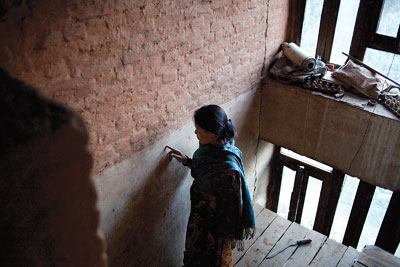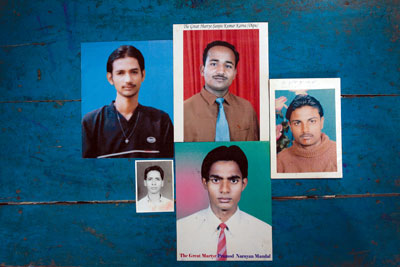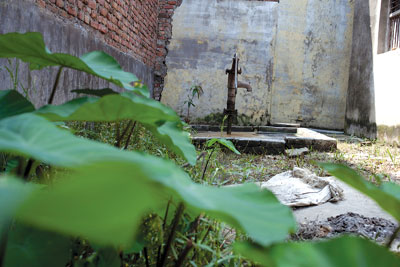Purnimaya Lama never abandoned her quest for justice. Her husband Arjun was taken by Maoist cadres in 2005. Witnesses say they held him for two months before he was killed.
Yet again Nepal's political leaders are stalling on commitments to prosecute and punish those among them responsible for human rights abuses during the conflict. As they haggle to save their own skins, the voices of victims and their families demanding justice continue to be ignored.
Lawmakers want to replace bills creating a Truth and Reconciliation Commission (TRC) and a Commission on Disappearances with a new draft that lacks clauses prohibiting amnesty for serious abuses of international human rights and humanitarian law carried out during the armed conflict. The NC, UML and Maoists have apparently agreed to reduce the commissions' mandate to truth-telling and reconciliation, making it unlikely that anyone would be tried and punished for these horrendous crimes. After a long hard struggle, economic hardship and intimidation, the proposed changes could deny justice to thousands of victims and their families.
Purnimaya and Rajeev are not alone. Thousands of families continue to seek answers.
"Truth without justice will not only be questioned, it will be unacceptable to us. The community of victims will be compelled to reject such meaningless transitional justice laws and mechanisms," Ram Kumar Bhandari, Chairperson of National Network of Families of the Disappeared and Missing (NEFAD).
Amnesty for crimes like these would violate international laws and the commitments Nepal has made through the United Nations. It would also violate the terms of Nepal's Comprehensive Peace Agreement, the Interim Constitution and indeed the rulings of its own Supreme Court. Nepali leaders calling for an amnesty are ignoring the voices of those most affected by the years of conflict and promoting their own self-interests instead.
 |
 PICS: NAYANTARA GURUNG KAKSHAPATI |
Every few months, Purnimaya visits her family home in Dapcha that is now locked up as she lives in Kathmandu with her children. After her husband was taken and killed by the Maoists, Purnimaya began campaigning for truth and justice, which Maoist party cadres responded to with threats. Purnimaya says she would like to return to live in the village some day.
The case became notorious: the First Information Report (FIR) was filed only after considerable lobbying from family and after lawyers named UCPN(M) Constitutional Assembly member Agni Sapkota. But police never questioned Sapkota or any other accused, let alone make any arrests. Purnimaya Lama is determined to know why.
"I need proof. If he is dead, let me bury him. If he is alive bring him home. How long must I wait? No matter who we approach no one listens. How long must I live with this uncertainty?" Purnimaya Lama, wife of Arjun Lama.
 |
 |
Sanjeev Kumar Karna, Durgesh Kumar Labh, Pramod Narayan Mandal, Shailendra Yadav and Jitendra Jha were shot dead by the Kamala river, after being arrested by security forces on 8 October 2003. They were allegedly involved in Maoist student activities.
"The government does not want to address incidents from the conflict years. They do not want to prosecute the accused because the very powerful are involved. First the Nepal Army and second the Maoist party. There are agreements saying such crimes should be punished but I feel there is a tacit agreement to brush everything under the carpet". Govinda Bandi, Senior Legal Advisor, International Commission of Jurists. The tap where Sanjeev Kumar Karna was bathing in the outskirts of Janakpur, (above) when a joint team of the Police and Army arrested him and four other young men in October 2003. Karna and his four friends were later killed by the banks of a river and buried.


